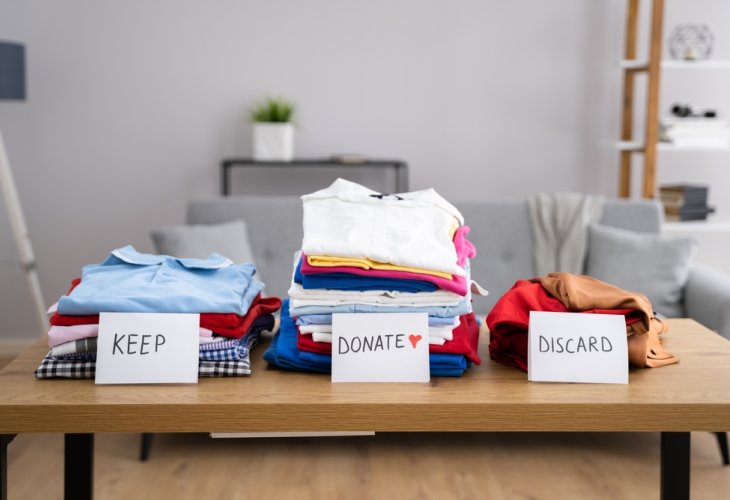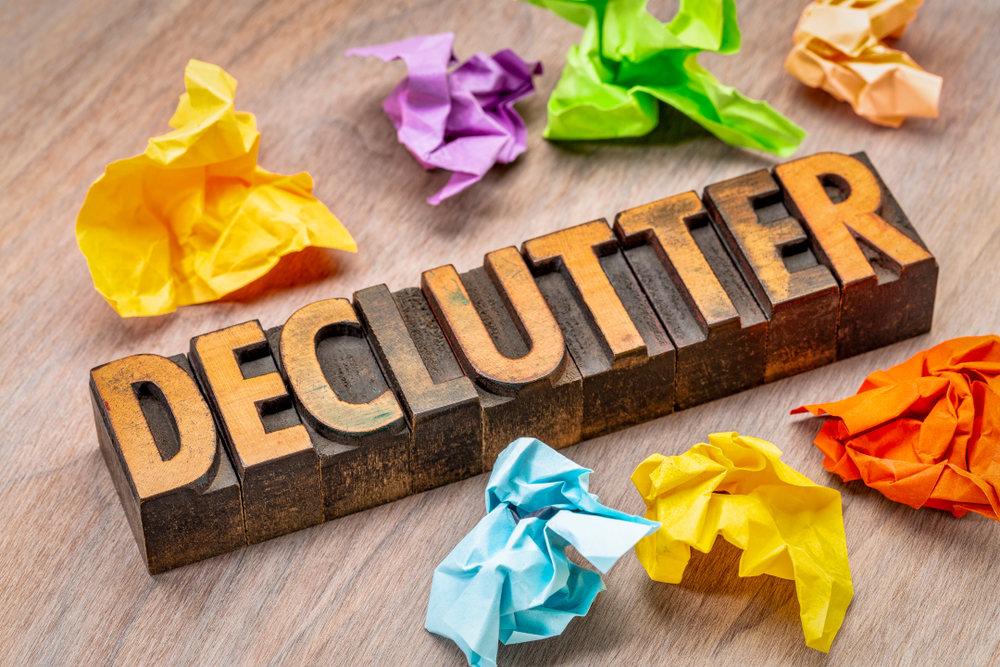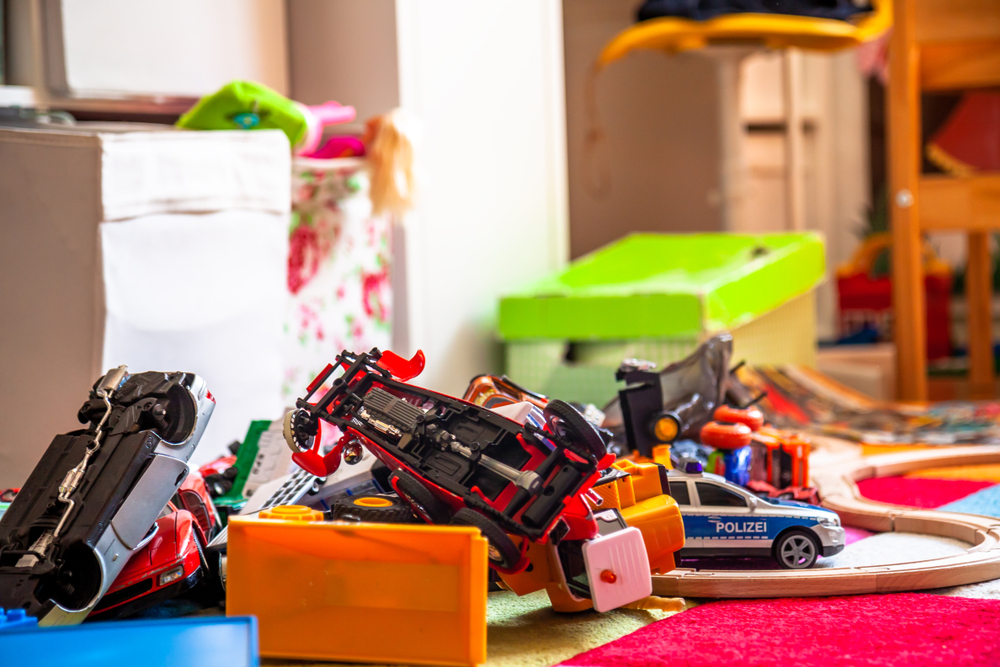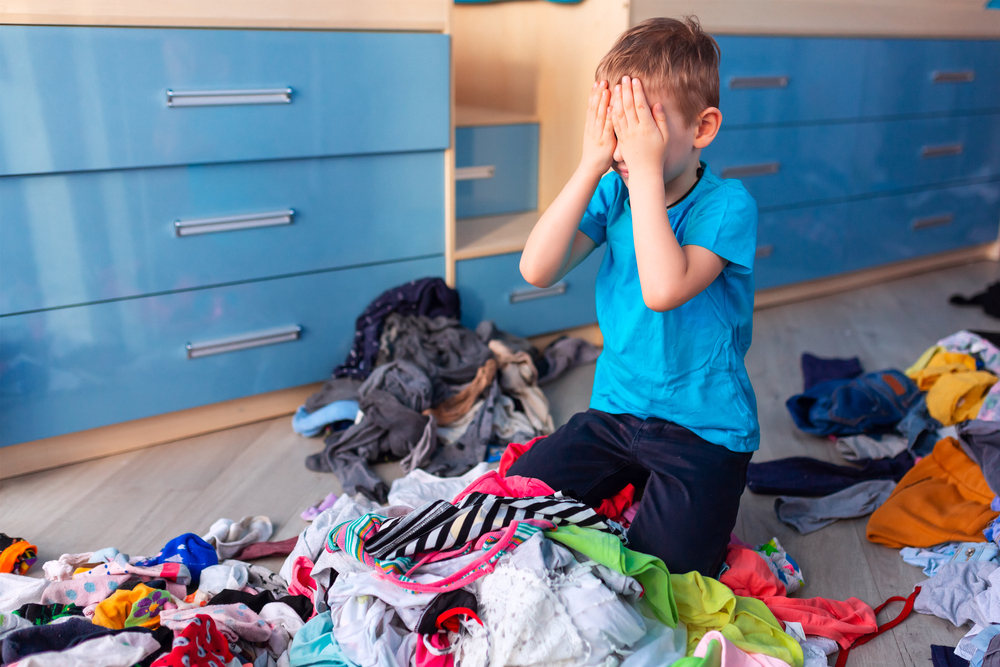How a Tidy Home Impacts Your Mind and Life Without You Even Realizing It
Numerous studies suggest that living in an organized and tidy environment can enhance our mental health and even lead to financial well-being. Is this true, and how can you achieve it?
 (Photo: shutterstock)
(Photo: shutterstock)Do you know those people who have ten kids and their house is always orderly, sparkling, and clean? No, me neither. Let's admit it, somehow with each additional child, it feels like the chaos also grows. Considering most of us don't live in ten-room houses (or even five, let's be honest), it's fair to say the collective journey to finding a solution to clutter is a daily endeavor.
Sure, maintaining habits of tidiness and cleanliness for everyone in the household is crucial, but there's one simple process without which these habits won't work or be beneficial. This process has a great name in English, and a rather uninspired one in Hebrew, and that is: DECLUTTER, or, as mentioned earlier in the translation, "reducing items".
 (Photo: shutterstock)
(Photo: shutterstock)No, It’s Not Minimalism
No, this isn't going to be an article about minimalism, although I secretly thought of trying those methods for a moment. I won't try to convince you to make do with the bare minimum to feel good. However, I will share that organizing and giving away items can benefit you in every area imaginable: mental, physical, emotional, and even financial. As I already mentioned, in English, there's a clear and wonderful word for this process, and in Hebrew, the translation (somewhat clumsy) is "reduction." To describe it better: tossing items out of the house to breathe easier. Sounds better, right?
So How Do You Do It?
Personally, I don't need any research to feel how clutter directly impacts my mood and how a tidy and pleasant home makes me calm and relaxed. So often, I found myself asking the kids to tidy up their room, and yet even after they "tidy," it still feels cluttered to me. A not-so-deep search often reveals socks in the Lego box, a Playmobil figure on the bookshelf, and generally, the clutter in the room doesn't disappear; it just gets shoved to the sides.
What do you do? Sort, give away, throw away.
Thank Hashem, we live in an age of abundance. It makes perfect sense for each of your children to have more toys than you ever did. Moreover, it's logical that even you have more than you actually need and use. A situation where the house appears orderly but is actually crammed with unused items creates an unconscious burden on the mind and heart, leading to fatigue, distraction, and even overeating.
 (Photo: shutterstock)
(Photo: shutterstock)Studies have found that living in a cluttered and untidy environment harms self-esteem, leads to unhealthy eating, poor mental health, and a feeling of "mental clutter"—a reduction in the ability to read people's emotions around you and less efficient thinking.
Where Do You Begin?
Start with wherever the process will be easiest for you. You can begin with toys, the kitchen, or paperwork—the key is to start. Here are a few tips to help you do the process correctly:
- Toys: Have you sorted the toys, and there's not even one extra? Hide a few in a hidden corner of the house (under the bed is fine, too). You'll be surprised how much space frees up in the house, and how delighted the kids will be to rediscover these toys after a while.
- Clothing: Have you sorted the wardrobe, but still want to keep items for the next child? Great. However, if your eldest son is 10 and your youngest is a year old, and there are daughters in between, do your wardrobe a favor and pass clothes on. As explained by Rebbetzin Yemima, every item has its own desire. In Hebrew, the word "chafetz" also means "will" or "desire." Every item desires to be used, and when it sits in the closet for years waiting for redemption, it becomes something no one desires. Pass on clothes and don't keep them for years. Be open to the possibility that abundance will flow back to you simply because you've released trapped energy and made room for something new.
- Paperwork: What about papers, drawings, documents? Most people have crazy stacks of paperwork, with manuals for electrical products often at the top. Don't keep what you don't need (a manual in Japanese for the vacuum cleaner you bought in 2017 is a great example), and make it a habit to go through bills, documents, and kindergarten drawings once a week.
Obviously, there are many more items you can go through in your home to organize, give away, or throw out. It's a good idea to prepare a list in advance of every area in the house that needs refreshing and go through each spot slowly. You'll be surprised at the relief you'll feel as you progress in the process. Feel free to give it a try.
 (Photo: shutterstock)
(Photo: shutterstock)Sorting, "reducing" and have insights? Write to us in the comments.

